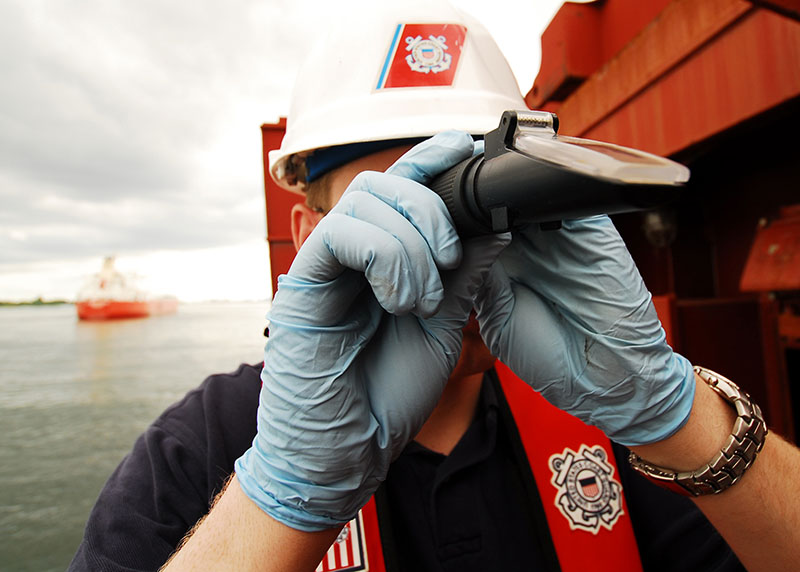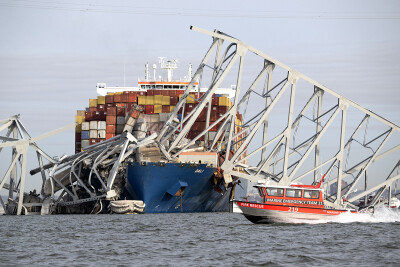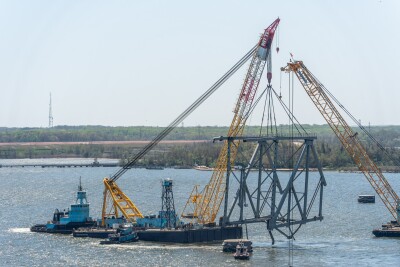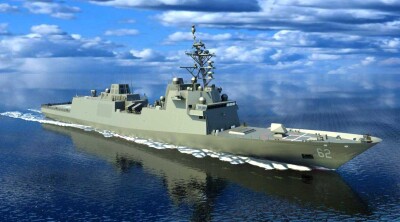As more inspections under the new Subchapter M towing vessel inspection program are performed remotely during the Covid-19 pandemic, those involved say that virtual evaluations are working well so far.
Joining the discussion in a May 12 webinar organized by the American Waterways Operators were Marcia Macone of Crowley Marine Services, Tava Foret of the Towing Vessel Inspection Bureau, a professional trade association of marine auditors and surveyors, Paul Hite, Subchapter M operations coordinator at the American Bureau of Shipping, Ric Singley of S&L Maritime Consulting, and Cmdr. Andrew Bender, supervisor at the Coast Guard’s Towing Vessel National Center of Expertise.
Participants shared their experiences working under the Coast Guard’s new guidelines that direct field units to “liberally use remote inspection techniques to verify vessel compliance, and if needed, defer inspections.” The topic is of heightened interest as the towing industry, the Coast Guard and third party organizations that also conduct inspections seek ways to protect their personnel from coronavirus infection while also meeting a July 20 deadline in which 50% of the nationwide towing fleet must have certificates of inspection.
As outlined in Coast Guard Marine Safety Bulletin 09-20 released on March 26, vessel inspection activities will be driven by flexibility and case-by-case conversations between Officers in Charge of Marine Inspection (OCMIs) and vessel operators. Onboard inspections using safety protocols are still an option, but the Coast Guard is encouraging remote evaluations to verify vessel compliance based on documentary evidence such as audit and survey reports and the use of photos, videos and videoconference tools. The OCMI has authority to defer inspections for up to 90 days if warranted.
Foret said TVIB offers three options — continue in-person inspections by its auditors and surveyors using safety protocols, submit a virtual activity report or ask for an extension 30 days prior to the due date. She said many clients have asked for extensions.
Crowley’s Macone said her company moved in early March to understand its inspection options with ABS, working to develop auditing procedures and trying to do remote audits. Crowley’s IT department became involved, and applications like Webex and WhatsApp were used. “It went extremely well,” she said. One challenge was getting images in certain areas below deck. “We’re constantly improving and looking at ways to make it better,” she said, adding that “it’s been a challenging and exciting time to overcome this. The crews are learning a lot.”
Singley, a former Coast Guard marine inspector who started S&L Maritime, said he’s done several internal audits and one external remotely “and they’ve come out very well.”
Singley said he tries to schedule them at a watch change when he can do a phone interview with the captain and the crew and then a vessel walk-through on FaceTime or Google. “I brief the captain on what I’d like to see and things have been very good,” he said.
Cmdr. Bender said that although the Coast Guard has been doing remote inspections for some time, he doesn’t see the practice fully replacing in-person inspections in the near future.
ABS has been using remote inspections and survey technology for some time and is now expanding to meet client demand due to Covid-19 concerns. Hite of ABS said that auditors and surveyors are adapting to the changing circumstances of inspections on towboats, and as time goes on there will be improvements and lessons learned.
Other highlights of the discussion:
- Remote inspections will mean more work for vessel operators, as they will have to make sure all documents are in order up front.
- No changes in fees are expected for remote inspections.
- The scope of remote inspections will be the same as in-person ones. “At the end of the day, our objective is the same, and the Coast Guard will want to be sure this is as uniform as possible,” said Hite of ABS.
A recording to the webinar will posted at on the American Waterways Operators website.





